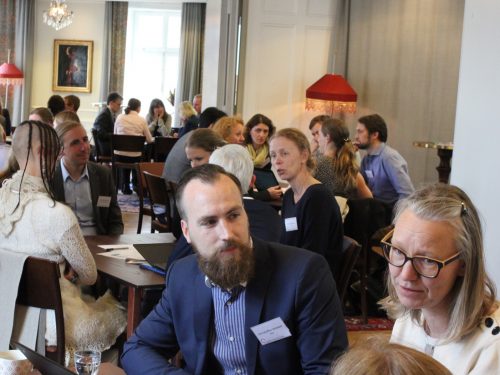Two days diploma course with a focus on Applied Life Cycle Thinking
On 27–28 October 2021, Swedish Life Cycle Center arranged a two-days course in Applied Life Cycle Thinking. The course was given online for the second time and for the first time it was given in English. Therefore, it attracted participants from several countries and organizations.
The life cycle perspective, understanding the environmental impacts of a product or service throughout the value chain, is of increased importance in business as well as in public sector and authorities. In this two-day course the aim was for the participants to get a deeper understanding on how to apply life cycle thinking in their organization, through real cases and proven methods.
Course leaders were Emma Rex, research leader in value-creating system design at RISE Research Institutes of Sweden. Kristian Jelse, sustainability consultant and owner of Greendesk. And Torun Hammar, researcher working with environmental system analysis as well as life cycle assessment (LCA) at RISE Research Institutes of Sweden. The course also included two guest speakers who helped to broaden the perspective and give insights and inspiration. Björn Spak, advisor at the Swedish Environmental Protection Agency and Erik Nellström, responsible for the product-related sustainability at Scania.
No previous knowledge of LCA was required to attend the course. Which is also one of the course’s greatest strengths as the course suits people at different levels of knowledge and interest. The common denominator is the participants’ focus on sustainability, but the participants work, for example, as strategists, environmental coordinators, environmental managers, buyers or investigators in both business and public sector.
Valuable knowledge
The course participants gave the course 9,3 out of ten in the course evaluation. Some of the most important learnings that was lifted in the evaluation was how a LCA can be set-up for different purposes and that knowledge about the complexity and need for collaboration is vital when performing a LCA. Another observation lifted was LCA as a good source for prioritization and learning about risks and opportunities. The ability to understand how to read an environmental product declaration and how to define functional unit and boundaries when performing a LCA were some of the appreciated practical skills that the participants mentioned in the evaluation.
I have learnt how to interpret LCA, how to use LCA, LCA in relation to LCT, importance of implementing LCA and LCT in the organization and that implementing must involve/affect many people when used the right way. I also take with me a lot of inspiration!– Course participant, October 2021.
More information:
Please contact us for further information: [email protected]

